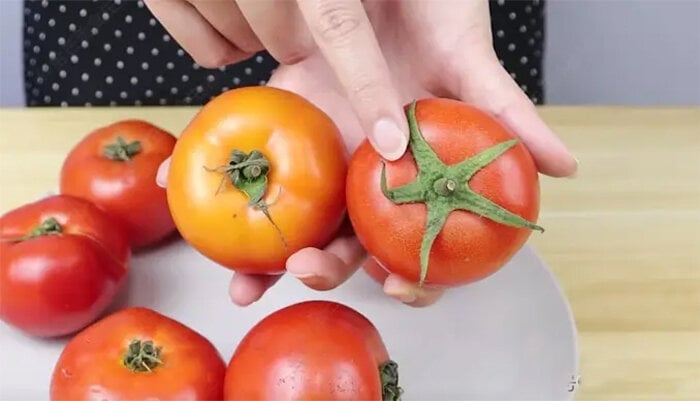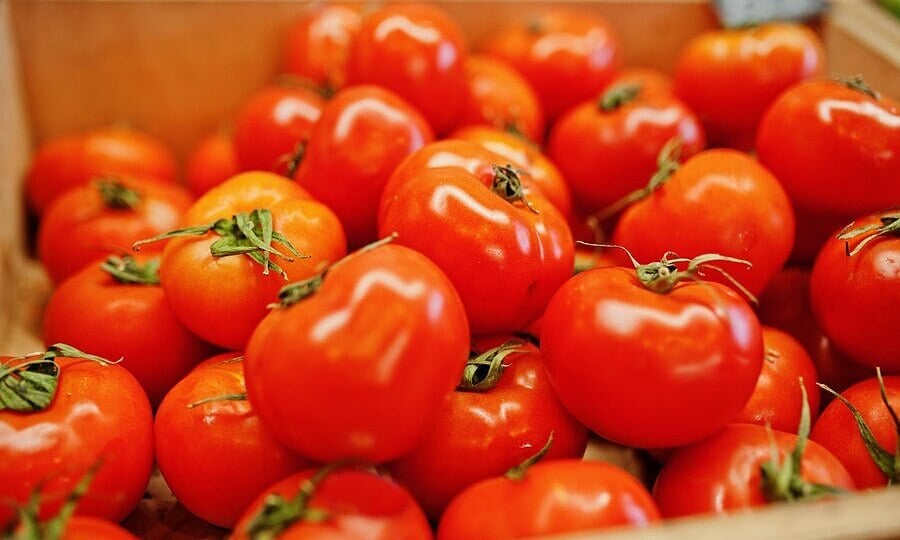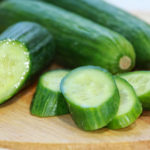Tomatoes are a staple in many family meals. To encourage even ripening and enhance the appearance of tomatoes, many suppliers resort to spraying chemicals on them. However, this practice poses a significant risk to human health. It is crucial to be vigilant and choose naturally ripened tomatoes, free from chemicals, to safeguard your family’s well-being.
Identifying Naturally Ripened Tomatoes Without Chemicals

Forced-ripened tomatoes tend to have an unnaturally red appearance all over, including the stem area, which receives less sunlight.
To differentiate between naturally ripened and chemically ripened tomatoes, pay attention to the following visual cues and sensory factors:
+ Color Observation
Although chemically ripened tomatoes may look similar to regular tomatoes, subtle color variations can be noticed.
Naturally ripened tomatoes, due to uneven sun exposure during growth, exhibit a range of colors on the same fruit. The area near the stem tends to be slightly greener, gradually ripening towards the bottom.
In contrast, forced-ripened tomatoes tend to have an unnaturally red appearance all over, including the stem area, which receives less sunlight.
+ Examining the Bottom of the Tomato
Another key indicator lies in the shape and appearance of the bottom of the tomato. Round tomatoes with a slight concavity at the top and a firm, plump appearance are typically indicative of a healthy, naturally ripened fruit.
On the other hand, tomatoes with protruding tops or odd shapes may suggest improper fertilization, suboptimal growing conditions, or forced ripening with chemicals.
+ Observing the Tomato Calyx
Tomatoes with a dark green calyx, fresh and taut branches, and a slightly sunken stem are naturally ripened and of superior quality.
Conversely, tomatoes with yellow or discolored calyxes have likely been treated with chemicals or are of inferior quality due to prolonged storage.
In addition to visual inspection, you can also gauge the ripeness and quality of tomatoes by their weight. Naturally ripened tomatoes tend to be denser and heavier. When held, they exude a subtle softness, whereas forced-ripened tomatoes are often firmer and harder to juice.

Tomatoes with a dark green calyx, fresh and taut branches, and a slightly sunken stem are naturally ripened and of superior quality.
Tomato Storage
Proper storage of tomatoes after purchase is essential to maintain their freshness and prolong their shelf life. Ideally, store tomatoes at room temperature rather than in the refrigerator. The optimal storage temperature is around 25 degrees Celsius, and they should be consumed within a week.
If the tomatoes are already very ripe or the weather is exceptionally warm, consider storing them in the refrigerator to prevent rapid spoilage.
Showcasing Beauty with a Natural Look
Today, it is a widely-held belief that the kitchen contains an abundance of natural remedies for perfecting your beauty routine. From honey to cucumbers, oranges and avocados, to almonds and papaya, some of the ingredients found in the pantry can give you fresh, glowing skin without the need for expensive cosmetics.





































